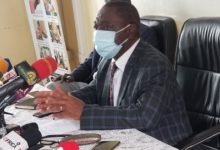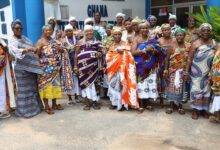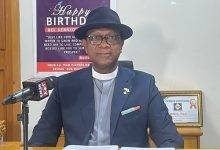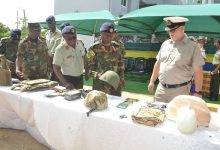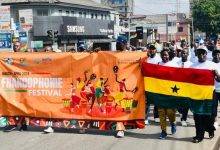
I recently read the following reaction to an article I had written:
QUOTE: “We often say things were well managed, meaning, done up to standard, when ‘we were growing up.’ When did things start to change and negatively, so to say? When things were changed, what replacement took place?…. After independence, ways and means were being pursued to improve the then existing standard of living ….Now it is only words without plan and action! UNQUOTE
Actually, it’s not difficult to pinpoint what’s been going wrong in our society since the days of “when we were growing up”.
Most “older generations” in every society do not see an impressive enough improvement in the lives of the people of their societies as to make them say, “Things are better now than they were, when we were growing up!” Otherwise, they would stop talking about “the good old days”.
The reason is that “when we were growing up”, the responsibility for taking decisions that affected our quality of life did not often lie with us. If we were young enough, decisions were taken for us by our parents.
At the national level, the colonial days, for example, were a period during which those of us who lived in rural areas were governed by chiefs and their “elders”, who, although not elected, needed to take their people with them in most of the decisions they took. This was because they could be destooled if they ignored the wishes of the people they governed.
Admittedly, it was easier in those days to ascertain the people’s wishes. The elders with whom the chiefs ruled were themselves drawn from the extended families of each village or town. So they were directly in touch with the populace and could convey to the chiefs, an expression of “public opinion” that was based on true facts.
There was no point in anybody lying in order to curry favour with the chief, because if one of the elders lied about the true state of affairs, the others would tell the chief the truth.
If the elders as a whole lined up behind a chief who was carrying out unpopular policies – such as selling stool lands or failing to organise the people to carry out necessary public works – they too could be denounced and deposed by members of their families. Nothing was hidden by being classified as “state secrets”.
So, for example, I observed “abrono” (streets) being created for the first time in my town.
The chief and his elders came to the conclusion that our houses were too close to each other and that surveyors should be employed to map out streets in all living quarters. The surveyors came and do their job, but when it came to creating the streets, there was much bitterness, because some people had to lose their houses or parts of their houses, whilst the houses of others were not touched. But eventually, those who lost out accepted their misfortune with good grace.
On the other hand. When the townspeople heard that their chief had allegedly declined to allow pipe-born water to be brought to the town because, (according to rumours) his opinion was that the two streams in the town were adequate for the people’s needs, the “young-men’s group” (asafo or kyirem) decided that he should be destooled.
They massed up on the streets and began to shout insults in the direction of the chief’s palace. They indicated with their actions that they might unleash violence on the chief. It was not till the chief and his elders had taken the trouble to explain matters to them that they let sleeping dogs lie..
When the CPP Government replaced the colonial government and began to turn the country into a one-party state, it destooled the chief who had withstood an attempt by the populace to destool him! But the people of the town did not agree with this, and they offered no co-operation whatsoever to the new chief. In fact, so unpopular was his decision to replace his own uncle as the chief that when the CPP Government fell, he was obliged to move from the town!
Now all this goes to show that the people and their rulers had a symbiotic relationship that was translated into actions that often led to the fulfilment of the desires of the people. Local councils and by extension, the national Parliament that were set up to replace the colonial rulers, did not directly touch the lives of many people. Members of Parliament tended to be drawn from the “capitals”; that is, the capital of a state or region, and when they succeeded in getting elected, they spent most of their time in the “super-capitals” (Accra, or Kumase, with Tamale and Sekondi-Takoradi close behind.)
It stands to reason that if you do not live with a people, you should be less well-acquainted with their problems. They can tell you they often run short of electricity or water, or that when they fall sick, obtaining medical care is difficult for them. But the recipient of such information can only appreciate it at an abstract level, whereas if he lived with the people, he would not even need to be told of such problems.
Of course, there have been exceptions to this rule and we’ve had MPs and Ministers who empathised with the people they represented. But the general picture, after independence, has been one of “alienation” of the ruled from their rulers. This has been worsened by the occasional intervention in the administration of the country of soldiers who were not elected by anybody and who didn’t expect any electoral dividends to accrue from the satisfactory resolution of the people’s developmental problems.
I think we should go for the total decentralisation of our entire governmental process. We mus begin with the political parties: they should, as a matter of policy, refuse to accept the nomination to national positions, of people who have never served in their district or region. Experience has to be gained at the local level first, before it can be applied to national issues.
Serving in a relatively low-paid capacity at the local level will teach politicians to find fulfillment not in the acquisition of riches but in job satisfaction. Our present system does not enable our representatives to be able to stand up in Parliament or other public venue and utter words that everyone accepts as reflecting reality totally.
By CAMERON DUODU

